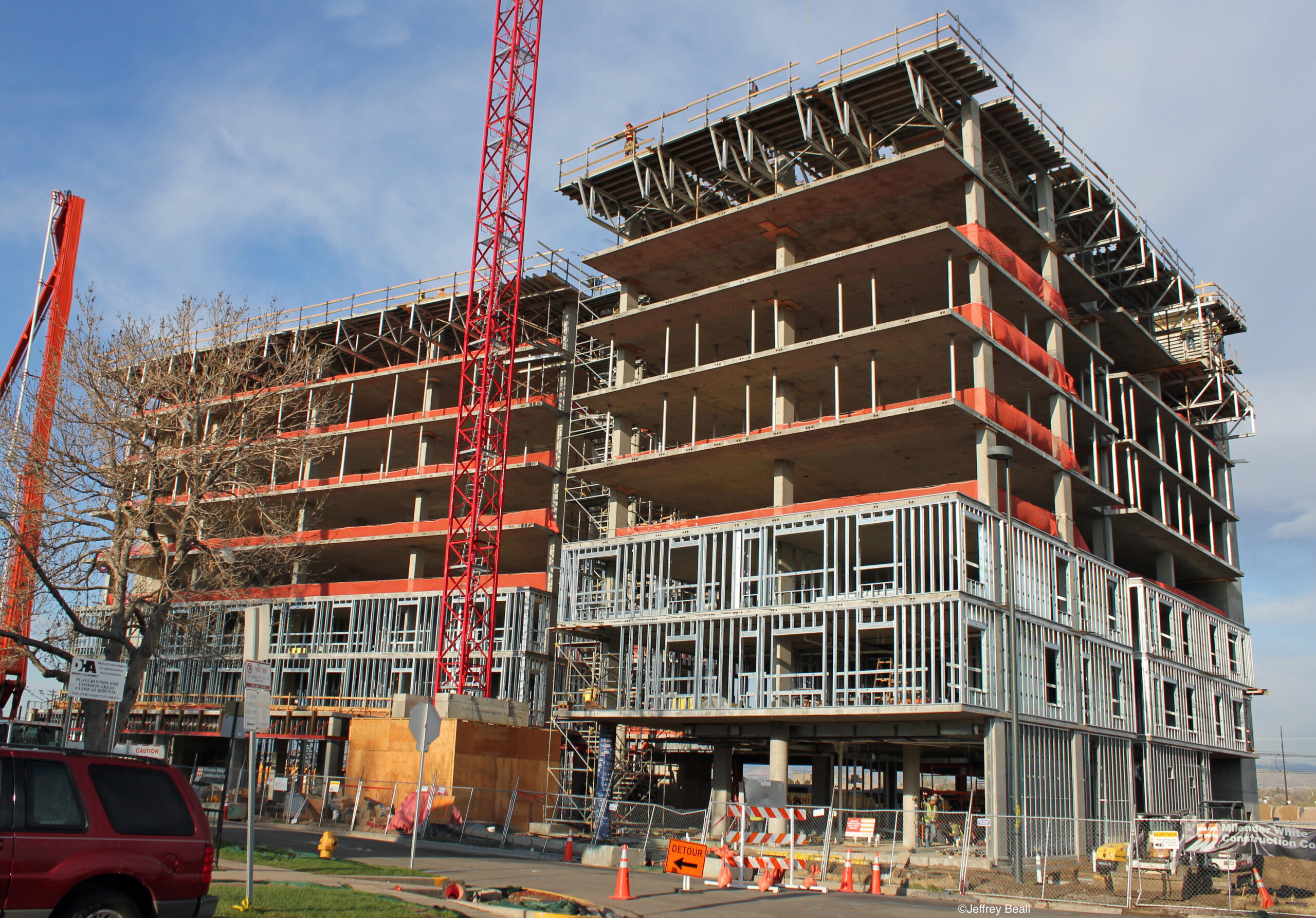Back in March 2021, city auditors issued a blunt assessment of the city’s permitting system.
“Getting a building permit in Portland can be a frustratingly slow process,” the auditors concluded, noting the city had for years missed its own timeliness goals. “Delays can affect the economy and motivate property owners to skirt the permitting system altogether.”
Increasingly complex city regulations made it harder for builders to get swift approval on even the simplest projects. The city’s Development Services department even failed to follow policies requiring quarterly reporting of customer complaints and resolutions. Unsurprisingly, a majority of those surveyed reported they were dissatisfied with the city’s permitting process.
“Portland’s fragmented form of government exacerbates the situation,” the auditor noted. “Seven bureaus and City Council are responsible for plan reviews, but no one entity manages system-wide performance. The bureaus have important improvement projects underway that were progressing slowly even before the pandemic. Meanwhile, the more difficult work to address persistent concerns about Portland’s complex regulatory environment has stalled altogether.”
Read Sal Rodriguez’s Free Cities Center article about Seattle’s rejection of rent control.
Read Pacific Research Institute economist Wayne Winegarden’s study about the nation’s freest cities.
This prompted some efforts by Portland City Council members to get things right, including the creation of a task force to try to improve the situation. But a year after the auditor’s call for reform, the city hadn’t made much headway.
“Last month, it took the city about twice as long to evaluate permit applications than its goal – nearly 200 days, for example, to grant a permit for a new commercial building compared to its goal of 71 days,” reported the Oregonian in July 2022. “A typical permit for a home alteration should take just 27 days to approve but in each of the past 12 months has taken more than 50.”
Fortunately, city leaders pressed on.
Earlier this year, Portland Commissioner Carmen Rubio proposed consolidating the city’s permitting processes into a single office to simplify the Byzantine process involving half a dozen city offices.
Rubio, who oversees the city’s Development Services and Housing bureaus, understood that as helpful as incremental reforms could be, there was no getting around that the very structure of the city’s permitting system is the problem.
“I have had five months to look at the intersection of housing production and our permitting services, and it is apparent that the next step is the one many have been talking about for years yet has never taken hold,” Rubio wrote in a memo dated June 6. “The city of Portland must unify its permitting functions within one entity.”
The proposal drew support from both business and labor groups, which recognized the need for speeding up the permitting process in order to build needed housing and create jobs in the process of doing so.
“While we applaud the [permit task force] and city employees’ unwavering dedication to this work, it is inconceivable to think that ‘progress’ on any measurable scale has already been achieved,” argued business groups like the Home Building Association of Greater Portland and the Portland Metro Chamber. “As many on this task force will attest, we need wholesale permitting reform, not a bureaucratic tug-of-war.”
Despite the straightforward logic of Rubio’s proposal – consolidating the work of several bureaus into one office to simplify the permitting process – Rubio’s proposal was met with stiff pushback from some bureau heads.
According to reporting from Willamette Week, four bureau heads signed a letter in opposition. “Staff don’t come to work just to issue permits for the city of Portland, they come to work because they believe in contributing to a safe, equitable, reliable transportation system for all Portlanders, a thriving urban tree canopy, clean and safe drinking water and surface water for the community and our watersheds,” they wrote. “Efforts to retain staff without this tie to mission will be increasingly difficult.”
If that sounds like featherbedding, that’s because it is. Government bureaucrats will often resist substantive reforms to help the broader community because of concerns about what reform will do to their bureaucracy.
The good news is that these appeals didn’t stop the Portland City Council in August from instructing the city’s chief administrative officer, in concert with the impacted bureaus, to plan for a consolidated permitting entity by July 1, 2024. The move was lauded by, among others, the city’s auditors, who noted that audit reports going back more than 20 years had called for consolidation.
Alas, there still appears to be some ongoing pushback within the city’s bureaucracy. In October, Willamette Week reported concerns from Development Services director Rebecca Esau that the city’s chief administrative officer, Michael Jordan, was already slow-walking the consolidation process.
“The directors and [project manager] all know he is opposed to consolidation,” wrote Esau in a Sept. 11 email to Commissioner Rubio. “So essentially they have his permission to undermine and stall this project.”
Jordan and other city officials have publicly claimed they remain committed to seeing the overhaul through. Time will tell how that goes, but Portland has made a huge step in the right direction with this overdue reform.
Sal Rodriguez is opinion editor for the Southern California News Group and a senior fellow with the Pacific Research Institute. He is the author of Dynamism or Decay? Getting City Hall Out of the Way, published by the Pacific Research Institute.

